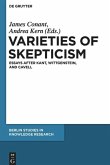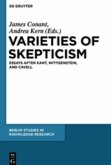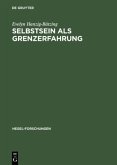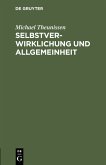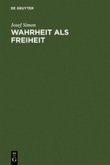Must we acknowledge scepticism as an uncontrollable threat to our claims to knowledge? Using the differences of its systematic forms in theoretical and practical philosophy, the author makes an argument for the alternative strategy of integrative antiscepticism which diagnoses philosophical doubt as an indispensable component of human rationality and thus attempts to control it. The investigation is based on the concrete confrontation of pyrrhonic scepticism with Hegel.
Müssen wir den Skeptizismus als unkontrollierbare Bedrohung unserer Wissensansprüche anerkennen? Die gängigen antiskeptischen Strategien geben auf diese Frage letztlich keine befriedigende Antwort. Anhand der Differenzierung und Analyse der systematischen Formen des Skeptizismus in der theoretischen und praktischen Philosophie argumentiert diese Studie daher für die Strategie des integrativen Antiskeptizismus. Diese Strategie diagnostiziert den philosophischen Zweifel als unverzichtbaren Bestandteil menschlicher Rationalität und versucht ihn so zu beherrschen. Gegenstand sind der praktische, epistemische, moralische, interne und externe Skeptizismus. Grundlage der Untersuchung bildet die konkrete Konfrontation der pyrrhonischen Skepsis mit Hegel.
Müssen wir den Skeptizismus als unkontrollierbare Bedrohung unserer Wissensansprüche anerkennen? Die gängigen antiskeptischen Strategien geben auf diese Frage letztlich keine befriedigende Antwort. Anhand der Differenzierung und Analyse der systematischen Formen des Skeptizismus in der theoretischen und praktischen Philosophie argumentiert diese Studie daher für die Strategie des integrativen Antiskeptizismus. Diese Strategie diagnostiziert den philosophischen Zweifel als unverzichtbaren Bestandteil menschlicher Rationalität und versucht ihn so zu beherrschen. Gegenstand sind der praktische, epistemische, moralische, interne und externe Skeptizismus. Grundlage der Untersuchung bildet die konkrete Konfrontation der pyrrhonischen Skepsis mit Hegel.


